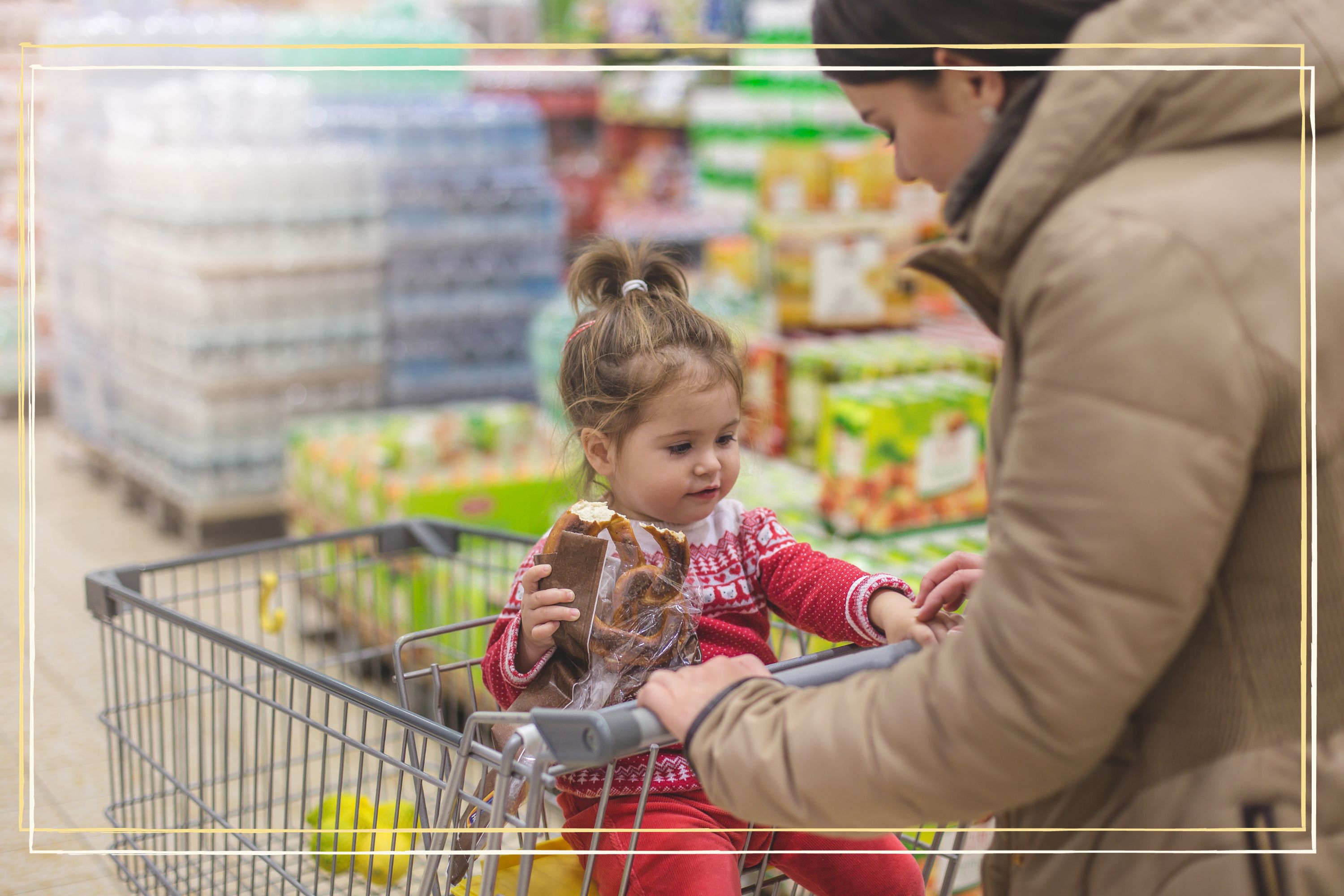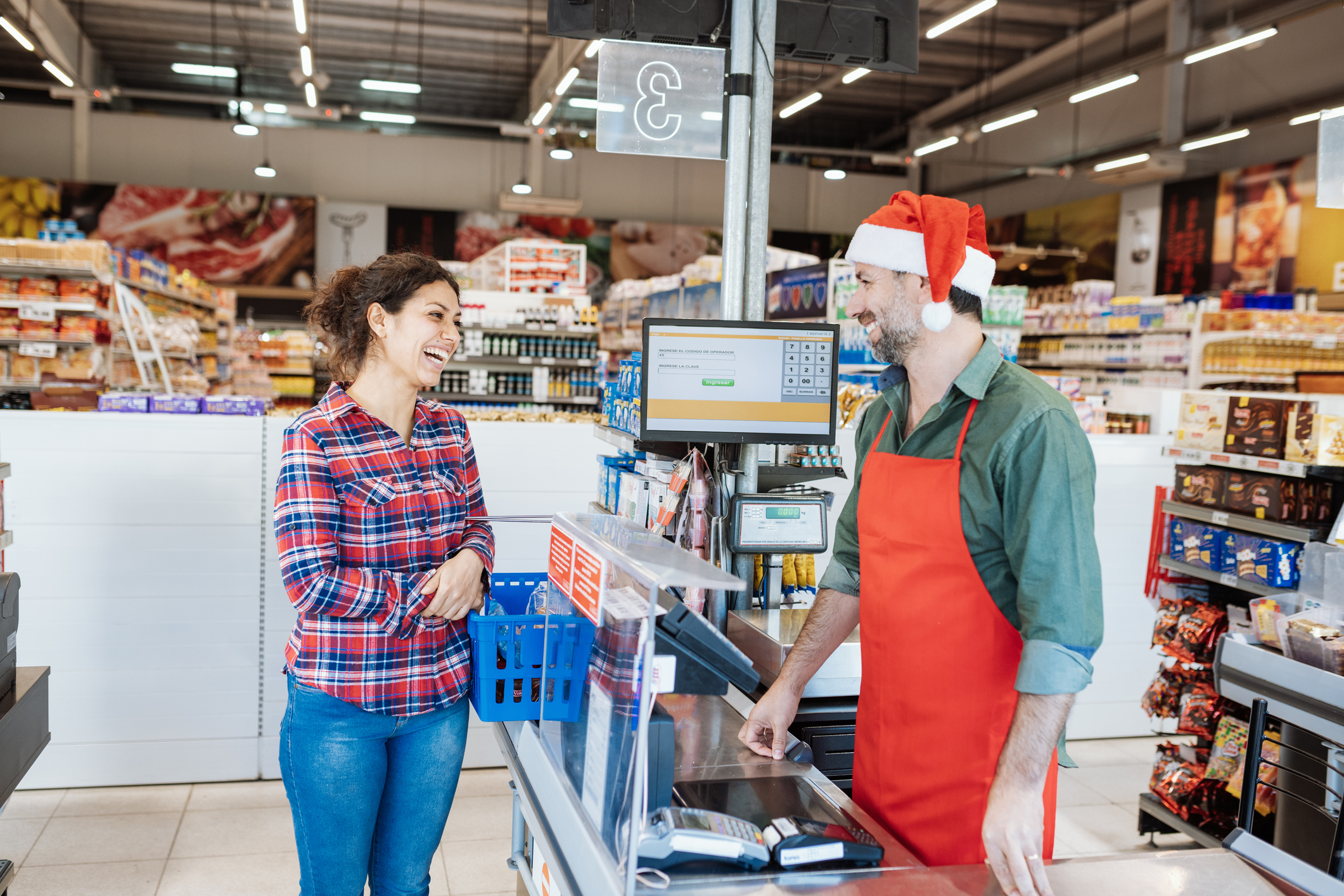When is the best time to do Christmas food shopping?
Experts reveal when to start stocking your fridge for the festive season


Parenting advice, hot topics, best buys and family finance tips delivered straight to your inbox.
You are now subscribed
Your newsletter sign-up was successful
Whether you've wrapped all your Christmas presents or still have a few left to buy, you might be wondering when is the best time to do Christmas food shopping this year.
Knowing whether Alid is cheaper than Lidl when it comes to finding out the cheapest supermarket might be on your list, but you should also consider whether you should start snapping up festive food now or wait until closer to Christmas for some bargains like deals on the best non-alcoholic wines.
Supermarket loyalty cards are also a great way of saving money on your food shop and they can be used all year round.
Research from Marks and Spencer and YouGov, previously predicted that 15% of UK adults believe they’ll be stocking up on festive food earlier than normal. As families try to recreate their own Christmas buffet ideas or have a go at hosting Christmas dinner, they're wondering when is the best time to do Christmas food shopping and if they should get started already...
When is the best time to do Christmas food shopping?
While experts may not be able to agree on the exact date or day that will be best to do your Christmas food shopping, what they do all agree on is that this year, in 2023, the best time to do Christmas food shopping is as soon as possible.
With food prices continuing to rise and shops having stocked festive food earlier this year, it makes sense that families should want to start their food shops as early as possible to avoid any unexpected price hikes.
And with a reported pigs-in blankets shortage due to vet strikes and poor weather ahead of the festive season, according to meal-box delivery service, Green Chef. you might want to snap up the sausages as soon as possible so you're not disappointed.
Parenting advice, hot topics, best buys and family finance tips delivered straight to your inbox.
M&S previously predicted that customers would spread the cost of their festive shop and get started on Christmas food shopping sooner rather than later but some families might be waiting to see whether food prices will go down in 2023.

Andy Barr, retail expert and Co-Founder of Alertr.co.uk, said: “Typically, you’ll find that the busiest day for Christmas food shopping is the Saturday before the big day."
That falls on Saturday, 23rd of December in 2023.
He added, "It’s a good idea to go online to do your shop, as you can do this in advance. Otherwise, the first or last hour of trading is usually the quietest. Also weekdays rather than at the weekend.”
Make sure to book your Christmas food delivery slot ahead of the festive period too. Popular Christmas food like turkey, pigs in blankets and Goose Fat Roast Potatoes will be snapped up quickly. The earlier you do your shopping online, the more likely the supermarket will be to have the items you want.
Do your Christmas food shopping in stages this year
Try making a Christmas food menu plan now to save time later and book a slot early for the cheapest online food shopping. This will also allow you to start shopping for some items you know you will need as soon as possible.
Think about what you can buy now that will keep, such as freezer food, cupboard goods, and bottled drinks like wine. For example, luxury freezer food brand COOK has already opened their Christmas food pre-orders. This means you can order pre-made Christmas food now and secure a Christmas dinner delivery date for December.
Andy Barr recommends: “One of the most important things to remember when it comes to Christmas food shopping, is that it doesn’t all need to be done in one gigantic shop. Space out the shopping, rather than doing it all in one go. For any long-lasting items (wine, crackers, best Christmas pudding) it is never too early to purchase. Buying these any time before the end of November means that you’ll get them for a discounted price, particularly for the seasonal items."
On his blog, chef Rick Stein recommends: "Get all your food and drink shopping done by December 22nd – that way you can avoid a last-minute trolley dash around your local supermarket."
He also recommends "checking you’ve got enough oil to cook with and plenty of salt and pepper for seasoning."
This is a good tip if you're being organised and buying some of your Christmas food in advance. You don't want to get to the big day and realise you're down to your last tbsp. of olive oil!
Things like spices, herbs and condiments (you can't have Christmas without cranberry sauce!) will all keep well. Buy these in advance and keep them safe in the cupboard until Christmas Day.
Last year the busiest shopping days were 17th and 22nd December. According to Swifterm.com. If you don't want to start your Christmas food shopping early – fair enough. Just make sure you avoid these dates and don't leave it until the days just before Christmas Day to start!
In other food news, why not try these 30 Christmas recipes to make in advance, alternatively if you're looking for ways to use Christmas leftovers these six tips will help.

Selina is a Senior Family Writer for GoodtoKnow and has more than 16 years years of experience. She specialises in royal family news, including the latest activities of Prince George, Charlotte, Louis, Archie and Lilibet. She also covers the latest government, health and charity advice for families. Selina graduated from the University of Sheffield in 2006 with a degree in Journalism, and gained her NCTJ and NCE qualifications. During her career, she’s also written for Woman, Woman's Own, Woman&Home, and Woman's Weekly as well as Heat magazine, Bang Showbiz - and the Scunthorpe Telegraph. When she's not covering family news, you can find her exploring new countryside walking routes, catching up with friends over good food, or making memories (including award-winning scarecrows!)